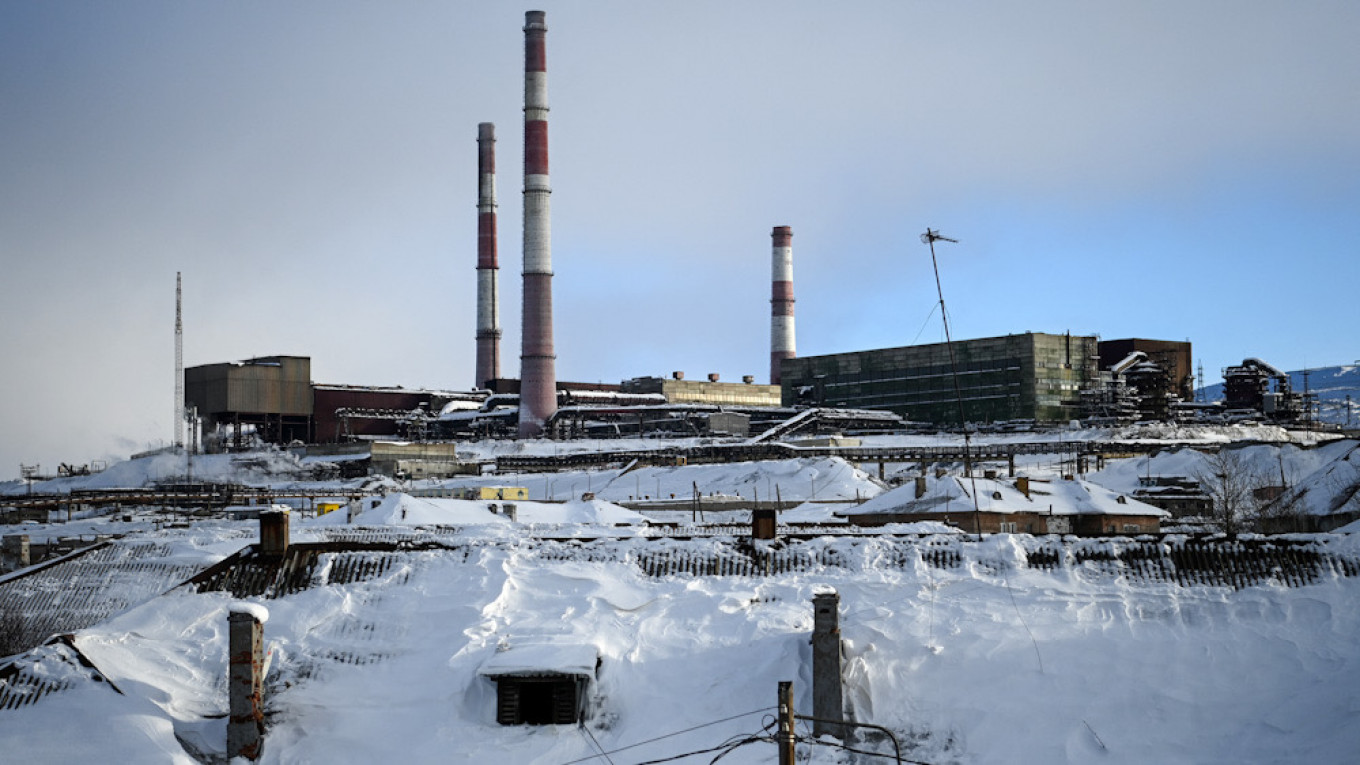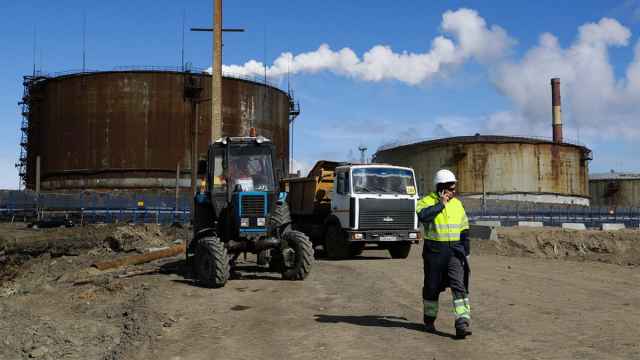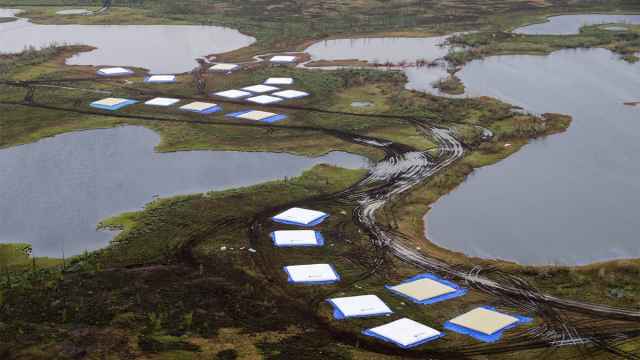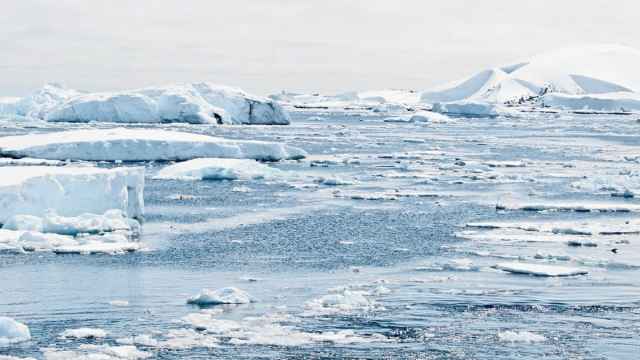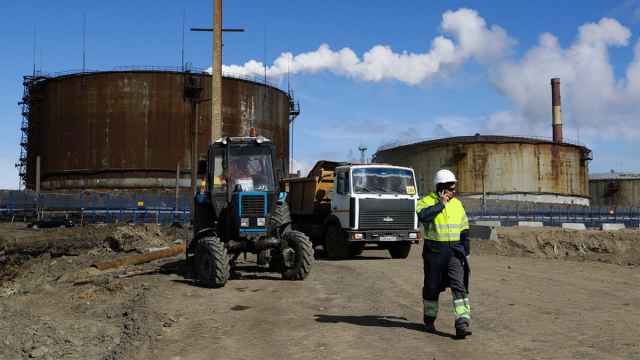Freezing winds blow through a vast hangar in the Russian Arctic where giant, once-gleaming machines are still and a layer of snow has covered empty vats.
Owned by the mining giant Norilsk Nickel, a leading operator in Russia's northwestern resource-rich region of Murmansk, the Nikel metallurgical plant was a major source of pollution for decades.
In 74 years of operation, the plant near the Norwegian border produced more than 2.4 million tons of nickel, a non-ferrous metal that gave the town of Nikel its name.
Each year, the smelter spewed out four times as much sulfur dioxide as all of Norway's industries, devastating vegetation and poisoning the region's air.
But the former howl of turbines has now given way to silence. Closed in December, the Nikel factory with its near-dilapidated buildings and outdated technology is to be dismantled by 2029.
Strolling among the frost-covered machinery, production assistant Vladimir Bezushkov does not hide his bitterness over the death of a factory to which he gave 25 years.
"I would have liked to continue working as I did before. It's a shame but what can be done?" Bezushkov says.
Asked about the plant's sulfur emissions and the resulting pollution, he responds: "Maybe, but we met all the standards."
Lessons learned
The closure of the Nikel smelter is part of a global strategy aimed at transforming Norilsk Nickel, also known as Nornickel, into an environmentally friendly company — or at the very least, limiting its environmental impact.
The shift in strategy comes in the wake of one of the Arctic's worst ecological disasters. In May, more than 20,000 tons of diesel leaked into lakes and rivers after a fuel reservoir collapsed at a power plant owned by Nornickel.
The company, which was slapped with a fine roughly equal to $2 billion by the Russian government, claims to have "learned an important lesson."
One of the world's biggest polluters and an essential cog in Russia's Arctic development, the company now plans to invest $5.5 billion over the next 10 years to modernize equipment, clean up existing pollution and support national parks.
One of those initiatives includes reducing emissions on the Kola peninsula — home to Murmansk and bordered by Norway and Finland — by 85% by the end of 2021.
"Nornickel has completely stopped dumping pollutants on the territory of Nikel and the surrounding region," the deputy director of the company's local subsidiary, Maxim Ivanov, told AFP.
Recognizing that sulfur dioxide emissions "have caused some environmental damage," Ivanov added: "The production of metals using modern green technologies is our strategy, our goal, and that is what we are striving to do."
'Not enough'
Nikel's metallurgical production has been partly transferred to the huge Monchegorsk factory farther south in the Murmansk region, where these new technologies are to be implemented.
Vadim Menchenin, a director of one of the plant's sectors, told AFP that with a new refining unit the company plans to double copper production to 150,000 tons per year.
"There will be no negative impact on the environment," Menchenin said.
Today, Nornickel's Monchegorsk plant produces copper, cobalt and nickel. But its smelter, like the one in Nikel, is to be closed by March 1 in favor of the more environmentally friendly refinery.
Neighbouring Norway welcomed the closure of the Nikel plant with local environmental NGO Bellona Foundation describing it as a "gift to nature."
In 2007, the plant's emissions were so severe that Oslo considered evacuating its border residents.
Yet despite significant investments in new technologies and reduced emissions, Nornickel's plants remain among the main sources of Arctic pollution.
"The closure of factories that have had their day is a step in the right direction. But it is not enough compared to the production volumes of this company with revenues amounting to several billion," Yelena Sakirko of Greenpeace's Russian branch told AFP.
"The Arctic has a very vulnerable ecosystem which takes a long time to regenerate," she added.
"In our eyes, there are regions that should be protected from human activities."
A Message from The Moscow Times:
Dear readers,
We are facing unprecedented challenges. Russia's Prosecutor General's Office has designated The Moscow Times as an "undesirable" organization, criminalizing our work and putting our staff at risk of prosecution. This follows our earlier unjust labeling as a "foreign agent."
These actions are direct attempts to silence independent journalism in Russia. The authorities claim our work "discredits the decisions of the Russian leadership." We see things differently: we strive to provide accurate, unbiased reporting on Russia.
We, the journalists of The Moscow Times, refuse to be silenced. But to continue our work, we need your help.
Your support, no matter how small, makes a world of difference. If you can, please support us monthly starting from just $2. It's quick to set up, and every contribution makes a significant impact.
By supporting The Moscow Times, you're defending open, independent journalism in the face of repression. Thank you for standing with us.
Remind me later.


